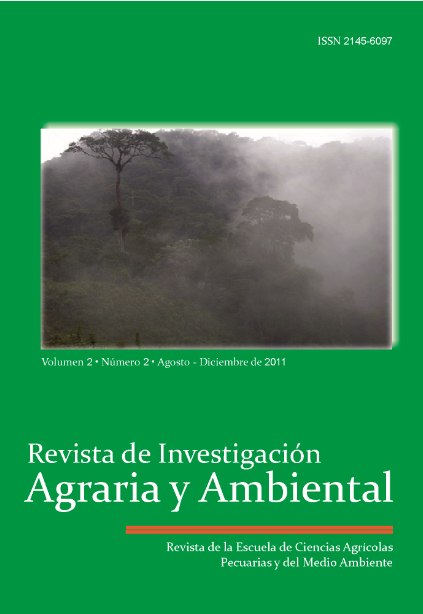When RIAA receives the postulation of an original by its author, either through email or post mail, considers that it can be published in physical and/or electronic format and facilitates its inclusion in databases, newspaper archives and other systems and indexing process. RIAA authorizes the reproduction and citation of the Journal’s material, provided that explicitly indicates journal name, the authors, the article title, volume, number and pages. The ideas and concepts expressed in the articles are responsibility of the authors and in no case reflect the institutional policies of the UNAD.
Effect of the use of molasses and efficient microorganisms, over the rate of decomposition of the sugar cane leaf (Saccharum officinarum)
The rate of decomposition of sugar cane leaves mixed with an organic fertilizer compost type was evaluated, using a finite accelerator (molasses) and an infinity accelerator (effective microorganisms). The trial was conducted in the greenhouse facilities of the National University of Colombia in Palmira. The results showed that molasses is a decomposition accelerator of the wastes of sugar cane leaf, since it shows a marked influence on the initial decomposition rate of the waste, but once the carbohydrates that constitute it are consumed, the rate of decomposition decreases significantly. Then the potential is evident on the waste of sugar cane leaf elements for the maintenance and/or biophysical capital improvement in the productive system of the sugar cane, as the result of their high photosynthetic efficiency.
When RIAA receives the postulation of an original by its author, either through email or post mail, considers that it can be published in physical and/or electronic format and facilitates its inclusion in databases, newspaper archives and other systems and indexing process. RIAA authorizes the reproduction and citation of the Journal’s material, provided that explicitly indicates journal name, the authors, the article title, volume, number and pages. The ideas and concepts expressed in the articles are responsibility of the authors and in no case reflect the institutional policies of the UNAD.




